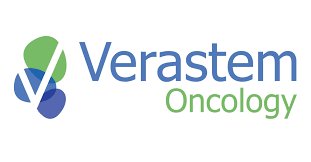Verastem Oncology Receives Orphan Drug Designation from FDA for COPIKTRA for the Treatment of T-Cell Lymphoma

Verastem, Inc., a biopharmaceutical company focused on developing and commercializing medicines seeking to improve the survival and quality of life of cancer patients, today announced duvelisib (COPIKTRATM) has received orphan drug designation from the U.S. Food and Drug Administration for use in the treatment of T-Cell lymphoma. The designation was created to encourage the development of drugs that may provide significant benefit to patients suffering from rare diseases.
“Receiving orphan drug designation for T-Cell Lymphoma, in addition to the previously-granted Fast Track status, for Peripheral T-Cell lymphoma, marks another important regulatory milestone to bring COPIKTRA to patients who are faced with this aggressive type of disease with limited therapeutic options,” said Brian Stuglik, Chief Executive Officer of Verastem Oncology. “We look forward to sharing the results of our Phase 2 PRIMO study and efficiently advancing our development program in this indication.”
COPIKTRA is approved in the United States for the treatment of chronic lymphocytic leukemia/small lymphocytic lymphoma (CLL/SLL) after at least 2 prior therapies and accelerated approval in follicular lymphoma (FL) after at least 2 prior systemic therapies. COPIKTRA is not currently approved for the treatment of T-cell lymphoma. The Company’s ongoing Phase 2 PRIMO study will provide guidance on a duvelisib monotherapy dosing regimen in patients with relapsed or refractory peripheral T-cell lymphoma (PTCL) and further characterize its efficacy and tolerability in this population.
In the U.S., under the Orphan Drug Act, the FDA’s Office of Orphan Products Development (OOPD) grants orphan drug status to a drug or biologic intended for the safe and effective treatment, diagnosis or prevention of rare diseases/disorders, which is generally a disease that affects fewer than 200,000 individuals in the U.S. and that are expected to provide a significant therapeutic advantage over existing treatments. Orphan designation qualifies a company for benefits that apply across all stages of drug development, including an accelerated approval process, seven years of market exclusivity following marketing approval, tax credits on U.S. clinical trials, eligibility for orphan drug grants, and a waiver of certain administrative fees.















































